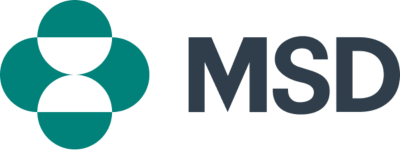The sheer scale of MSD’s medical reach is staggering. Over the last five years, more than 1 million cancer patients were treated with MSD’s medicines. And the company is conducting more than 2,000 clinical trials with its pioneering oncology treatments. Guided by science and inspired by patients, MSD also delivers 190 million global vaccines annually, and the company continues to develop treatments that help people suffering from HIV, Ebola, diabetes, and other health threats live longer, healthier lives.
Deep insight, fast research.
Timing is everything when it comes to treating patients. To advance its capabilities and speed to tackle global health issues, MSD must recruit and retain talent with the right skills and experiences to serve patients both now and in the future. “We’re a large global company,” says Eric Ervin, executive director of HR Technology Solutions and Strategy at MSD. “Identifying the experts we already have who can quickly move into a new role hasn’t always been easy. At times we have spent money on external resources only to discover later that we have the skills internally.”
To improve HR insight as well as employee experience, MSD deployed Workday Human Capital Management (HCM). It gives global employees a central system for managing HR data, automating workflows, and increasing understanding of skills, job roles, and employee opportunities.
Everything we do at MSD is based on science. Clearly seeing everyone’s skills mapped to our 5,000 roles will deliver massive benefits across all our global HR workflows.
Executive Director, HR Technology Solutions and Strategy
Start small, test, and analyze.
MSD’s HR teams used Workday to automate recruiting, compensation planning, and talent management workflows. They also enabled Skills Cloud to leverage an enterprise-wide ontology that uses machine learning algorithms to analyze employee data and infer skills. The improved insight increases MSD’s understanding of its workforce, making it possible to match workers to new opportunities.
We made tremendous improvements in recruiting and talent management and improved the quality of our HR data using Workday and Skills Cloud.
Executive Director, HR Technology Solutions and Strategy
Skills gaps and career paths.
Improving employee experience and talent management is an ongoing journey. Several years after its initial Workday deployment, the company continues to see new opportunities for using the system. “We’ve done a good job improving workflows within functional areas, but we want to bring everything together and give employees an integrated experience. So we’re planning to enable Career Hub in Talent later this year,” explains Ervin. “Soon when people log into Workday, they’ll not only see their skills, but also skills gaps, job opportunities, and possible career paths at MSD.”
Additionally, MSD joined the early adoption program to pilot the Talent Marketplace feature so that teams could post gigs to get the resources they require for short-term projects. At the time of the pilot, Talent Marketplace was only available in English, so MSD rolled it out in three countries and told Workday about its global language requirement.
Global gigs open doors.
MSD is also expanding its use of gigs to improve how it meets all of its HR goals—including the completion of its skills ontology—because gigs map people’s skills to roles. “As soon as Workday added global languages to Talent Marketplace, we rolled it out to all our sites,” says Diane Makin, director of HR Solutions, Talent, and Recruiting at MSD. “Because we let anyone open gigs at any time, we currently have 300 active gigs, but we’ve seen as many as 900.” This open model increases the number of gigs, which helps employees explore their interests, learn new skills, and fill short-term resource gaps. Managers can use gigs for pilot testing to see if an employee might be a good fit for a long-term position. Even HR staff use gigs to enable more user-centric feature designs by bringing in people from all areas of the company to help with testing.
A prescription for increasing skills data.
Delivering the integrated experience that MSD envisioned requires a complete skills ontology. However, as Ervin explains, “Defining the skills for more than 5,000 global roles, learning content, and adjusting those definitions as they change was going to take us a number of years.” To complete their job architecture work faster, the company is using a quantum analytics tool from SkyHive, a Workday Ventures capital–funded company. SkyHive can pull in skills data from third-party sources such as LinkedIn to help complete and verify MSD’s global skills lists and map those skills to the company’s job catalog, requisitions and learning content in HCM. Additionally, the HR team has taken ownership over MSD’s global skills strategy so that they can establish and govern standards for how skills are defined and mapped—and ensure that these standards align with every team’s requirements.
Today, more than 72,000 employees in 93 countries can use Talent Marketplace to post and sign up for gigs.
Director, HR Solutions, Talent, and Recruiting
Encouraging transparency.
Expanding and maintaining skills data is only possible when employees share their skills, accomplishments, interests, and goals in their Workday profile. MSD realizes this requires both trust and transparency. Without it, MSD can’t provide standards-based, personalized development guidance for everyone. “Explaining to employees what’s in it for them is more effective than making demands,” says Ervin. As staff share more information, they receive more relevant suggestions for training, mentors, gigs, and career options. He concludes, “Democratizing the level of guidance we provide for every employee—regardless of their role or performance level—improves engagement, retention, and, subsequently, our ability to develop the treatments and vaccines that improve the health of our neighbors around the world.”

